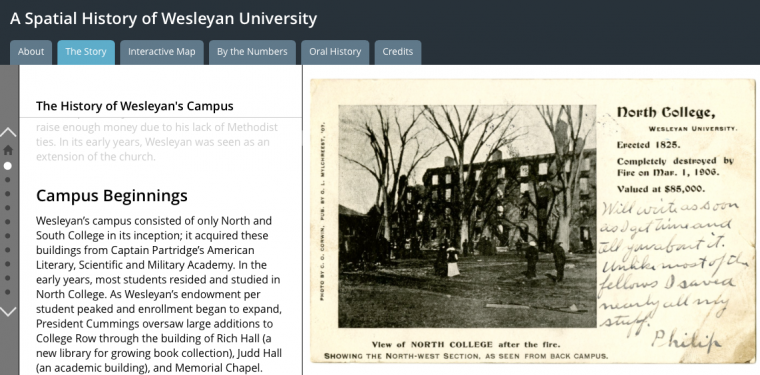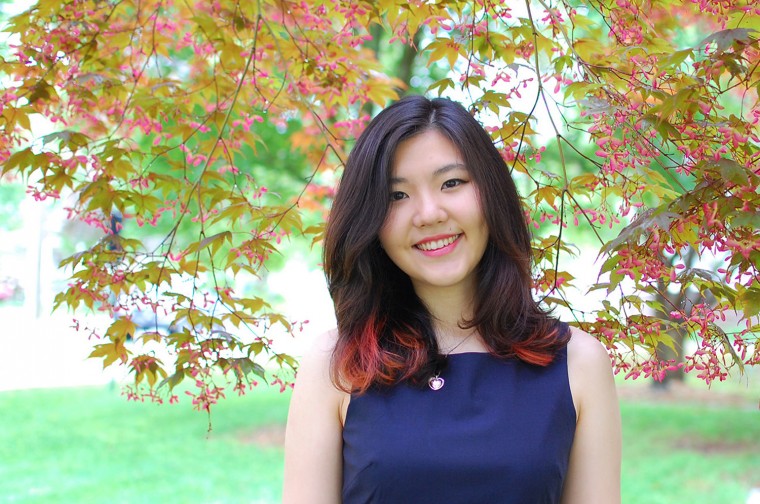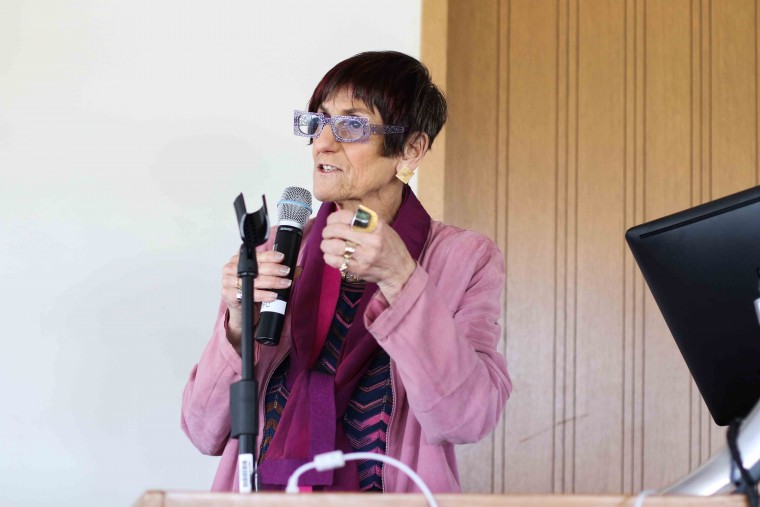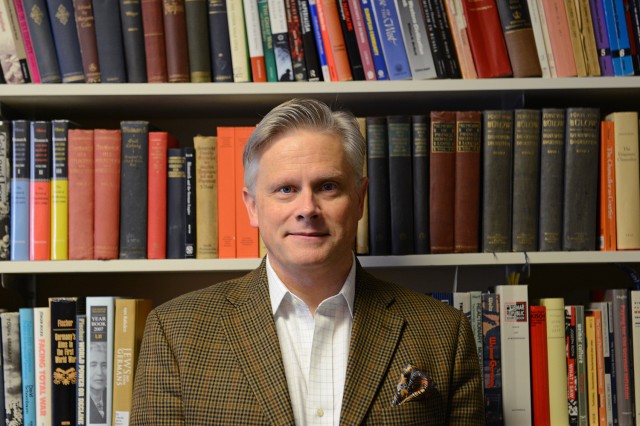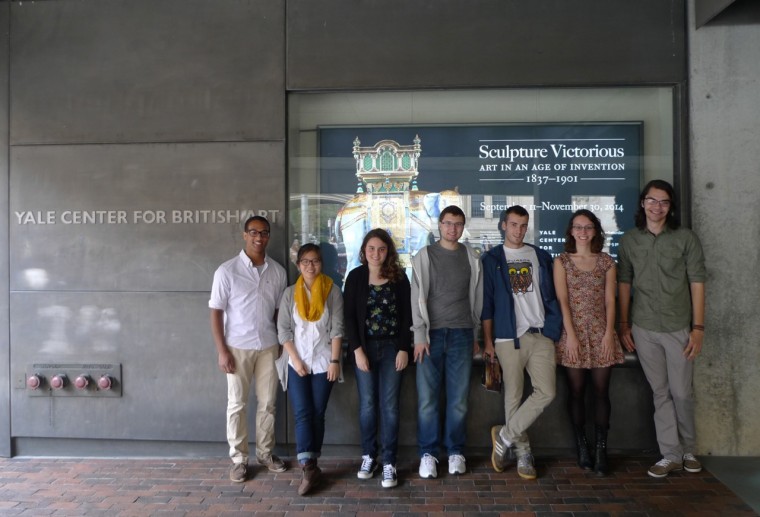Ahead of the centennial celebration of Wesleyan's Van Vleck Observatory, The Hartford Courant explored a bit of observatory history, including some recent discoveries of rare artifacts. A team of Wesleyan professors and students, together with the Astronomical Society of Greater Hartford, is preparing for an exhibit this spring, "Under Connecticut Skies: Exploring 100 Years of Astronomy at Van Vleck Observatory in Middletown, Connecticut." "We've been looking into every nook and cranny to see what we have here," Associate Professor of History Paul Erickson told the Courant. One exciting find: a rare early mechanical model of the solar system, long believed to be lost, known as "Russell's Stupendous and…
Seventy years later, it is widely believed that President Harry S. Truman made a decision to authorize the bombings of Hiroshima and Nagasaki. The truth, writes William Johnston in the Hartford Courant, is that he never did, at least not explicitly. Johnston, professor of history, professor of East Asian Studies, examines in an op-ed how history has been rewritten surrounding the bombings. In fact, Truman's first explicit decision about atomic bombs was to later order that their further use be stopped without his "express authority." But in summer 1946, Johnston explains, the need arose to write an alternative narrative, as the bomb's…
Two Wesleyan faculty received NEH Public Scholarships to encourage new research and support their upcoming publications. Only 36 writers in the country received the award.
The Public Scholar program, a major new initiative from the National Endowment for the Humanities, is designed to promote the publication of scholarly nonfiction books for a general audience. On July 29, the NEH awarded a total of $1.7 million to 36 writers including Wesleyan’s Jennifer Tucker, associate professor of history, and Andrew Curran, the William Armstrong Professor of the Humanities and professor of French.
#THISISWHY This semester, 18 students with an interest in communication and the history of Wesleyan University created a new website, "A Spatial History of Wesleyan University." The students, who were enrolled in the spring 2015 course, Digital History, conceived, designed, built, publicized, and launched this site. The class was taught by Amrys O. Williams, a visiting assistant professor of history, and was part of the university's Digital and Computational Knowledge Initiative. A Spatial History of Wesleyan University combines geographical and quantitative analysis with archival and oral history research to interpret the past in place. By studying the history of Wesleyan's campus…
#THISISWHY In this News @ Wesleyan story, we speak with Hyo Jeong (Tina) Jung from the Class of 2015. She is a history major with concentrations in social movements and contemporary history, and an East Asian studies minor. (more…)
On May 2, The Female Voice in Politics Conference brought notable and accomplished female politicians and leaders together at Daniel Family Commons in Usdan University Center to discuss the underrepresentation of women in U.S. politics and other issues facing women in the political arena today. Speakers included Congresswoman Rosa DeLauro of Connecticut; Connecticut State Sen. Toni Boucher; Dominique Thornton, former mayor of Middletown; Susan Bysiewicz, former Connecticut Secretary of State; Sidney Powell, attorney and author of Licensed to Lie; and Sarah Wiliarty, director of the Public Affairs Center, associate professor of government, tutor in the College of Social Sciences. The event was organized by Darcie Binder '15 and Kevin Winnie…
Associate Professor of History Erik Grimmer-Solem’s research on a celebrated German general, known as an “anti-Nazi,” is continuing to have an impact on the ground in Germany today. Over the past year, Grimmer-Solem’s findings have ignited a public debate in the country over General Hans von Sponeck’s place in history—a debate which has now turned to the matter of a commemorative stone honoring him. Since World War II, von Sponeck had been celebrated in Germany with an Air Force base, city streets and other monuments named after him. All this has changed since Grimmer-Solem’s research shed new light on the…
As a 2015 Humanities Research Centre Visiting Fellow, Associate Professor Jennifer Tucker will study Victorian sustainability, photography, law and river pollution prevention reform at Australian National University (ANU) in Canberra, Australia. Her appointment will be May 15-July 15. Tucker's ongoing research, tentatively titled “Science Against Industry: Photographic Technologies and the Visual Politics of Pollution Reform,” traces the historical roots of the use of visual evidence in environmental science and pollution reform. Using nearly 300 visual representations (drawings, engravings photographs, and graphs) from archives and libraries, many of which have never previously been studied, she analyzes the scientific impact of new forms of visual representation in chemical climatology and examines the…
An article by Victoria Smolkin-Rothrock received honorable mention for the Distinguished Article Prize from the Association for the Study of Eastern Christian History and Culture. Smolkin-Rothrock is assistant professor of history, assistant professor of Russian, Eastern European and Eurasian studies and tutor in the College of Social Studies. Her article, titled "The Ticket to the Soviet Soul: Science, Religion and the Spiritual Crisis of Late Soviet Atheism," appeared in Volume 73, Issue 2 of The Russian Review and was selected from among 22 entries. The honor comes with a $200 award. Smolkin-Rothrock's article examines the confrontation of Soviet scientific atheism with religion as it played out on the pages and…
Four faculty from the History Department participated in the American Historical Association Meeting in New York City Jan. 2-5. The topic was "History and Other Disciplines." Professor of History Ethan Kleinberg presented “Just the Facts: The Fantasy of a Historical Science." Kleinberg also is the director of the Center for the Humanities, professor of letters and executive editor of History and Theory. Assistant Professor of History Victoria Smolkin-Rothrock spoke on “From a Society Free of Religion to Freedom of Conscience: How Toleration Emerged from within Totalitarianism." She also is assistant professor of Russian, Eastern European and Eurasian studies and tutor in the College of…
Laura Ann Twagira, assistant professor of history, is the author of an article titled, "‘Robot Farmers’ and Cosmopolitan Workers: Technological Masculinity and Agricultural Development in the French Soudan (Mali), 1945–68," published in the November issue of Gender & History, Volume 26, Issue 3, pages 459-477. In 1956, Administrator Ancian, a French government official, suggested in a confidential report that one of the most ambitious agricultural schemes in French West Africa, the Office du Niger, had been misguided in its planning to produce only a ‘robot farmer’. The robot metaphor was drawn from the intense association between the project and technology. However, it was…
On Oct. 7, students enrolled in the course HIST 269: Notes from a Small Island — Modern British History, 1700 - Present, visited the Yale Center for British Art. The class, taught by Alice Kelly, visiting assistant professor of history, toured the center's two current exhibitions, "Sculpture Victorious: Art in an Age of Invention, 1837–1901" and "Figures of Empire: Slavery and Portraiture in 18 Century Atlantic Britain." "Seeing history through a different lens — art and sculpture — really aided their understanding of some of the class readings, and we were able to find a number of similarities, particularly in the…



